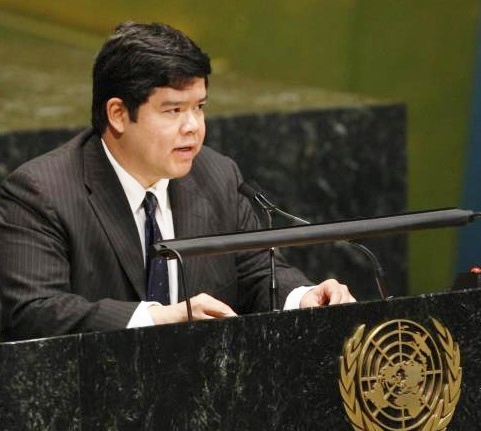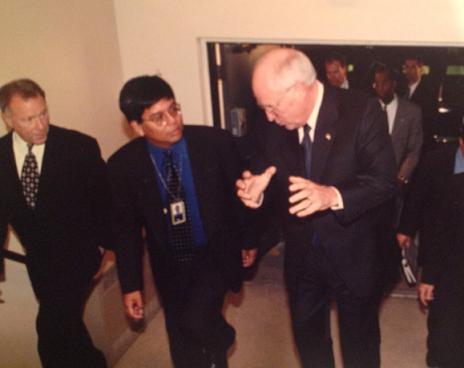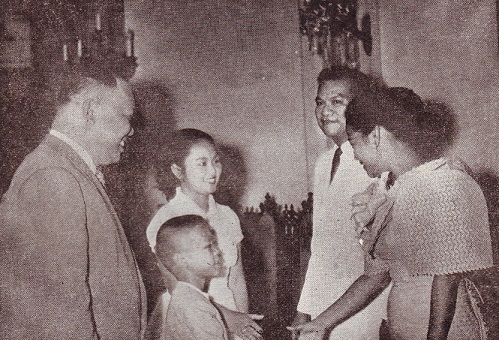Film critico incognito
By Joel David
This year’s just-concluded Cinemalaya Philippine Independent Film Festival, the first after a full year of the presidency of Ferdinand Marcos Jr., yielded a few controversies, the latest of which is centered on the pullout of a politically themed film from the opening ceremony – allegedly because it was censored (per political sectors), or possibly because seven hours was too long to wait out a ceremonial entry (per festival organizers).
Prior to the current uproar, a commotion over a social-network film reviewer broke out and took much longer to simmer down. In fact the said reviewer had already been writing for over a year, but the only filmmakers who objected were the ones working for a streaming outlet specializing in sex-themed material. This for me remains the key to the trouble that the festival had with this specific evaluator. The participants – artists, readers, even the reviewer himself – operated from not just an outmoded but also a long-unworkable set of assumptions. No wonder no resolution could be worked out.
The premise I’m referring to is the one which the entire concept of Cinemalaya rests on: that of identifying and subsidizing a vanguard of “best” emerging film artists. The necessarily politicized process this generates can be tracked to a well-intended system of adequate training – way back when no such option was available in the country; so even from the start, only aspirants who were sufficiently privileged because of class and/or nationality could actually achieve the necessary qualifications. Meaning it was never sufficient to just be talented and motivated; some form of social entitlement (wealth, foreign training, and/or industry contacts) would more often than not prove more effective. To better articulate the criteria and identify those who best exemplified the worthiness of outstanding aspirants, elite institutions – government and education, conveniently overlapping in the national university – volunteered to make their presence palpable.
What this led to was a clutch of spectacles by which film commentary would be nearly exclusively identified: annual exercises, in the form of festivals, that showcase entries preselected by supposedly discriminating evaluators, plus sets of prizes for either this closed system or for the entire industry, nearly all of which enact a dramatic process that can still occasionally prove captivating and suspenseful. Said process begins when a group of “deserving” talents would be announced, from which a circle of authorities would eventually declare (during “normal” conditions) one winner. One can see how entrenched this mentality is when several sets of academe-based groups continue to follow this annual ritual despite supposedly being more alert to its deleterious effects, starting with fostering divisiveness in the community of artists.
Hence the fascinating particulars of the Cinemalaya brouhaha, where the aforementioned Facebook reviewer provided rankings for the competition entries, culminating in an alternate set of awards. The complaints predictably came from filmmakers whose works were given low grades, with attendant unflattering commentary. What made this response dubious on its face is immediately evident: would they have voiced any objection if they were given higher evaluations? The reviewer himself posted his rationale – that since film screenings are costly, he’s providing a service to the general public by assessing for them which entries he believes are worth watching and which ones should be shunned.
A more sensible set of comments focused on the reviewer’s six-plus scoring system (from zero to five stars), which he had earlier expanded to include negative points. At some point, he wound up with a negative-infinity score for a movie he regarded as the worst, then realized that another movie was even worse and awarded it with a square root of negative-infinity score. This attempt to display mathematical competence is innumerate to anyone with a casual familiarity with basic principles in the field, although the explanation might be too technical for lay readers. The actual issues, which everyone missed out on, is also what the entire existing system of film evaluation fails to do. First, determining film worth according to certain standards of art, or relevance, or morality, no longer really matters as much as figuring out the issues that generated the work and how its audience responded to it. Hence the reviewer’s attempt at further refining his criteria (the equivalent of the award-givers’ categories) is a step forward … in the wrong direction.
Second, which was the topic I’d posted about earlier, by presuming to write about practitioners who have no option except announce their identities, the reviewer will have no justification for insisting on his anonymity. Is the country under a system of colonization or fascism, when underground literature historically became essential? Or are the film practitioners capable of criminally endangering those who criticize them? These are only rhetorical questions, of course. The non-rhetorical one is: why is the community of publicists protecting this reviewer’s identity, and why are the complaining artists not seeing anything anomalous about this? The scary answer is – because they all agree that film evaluation can only be expressed one way, by ranking one another, and the more difficult scientific and cultural work doesn’t have to get done. The ultimate winner here is none other than our reviewer-ranker, the one who (in a better world) deserves to be positioned at the bottom of the heap.
Joel David is a retiring professor of Cultural Studies at Inha University and was given the Art Nurturing Prize at the 2016 FACINE International Film Festival in San Francisco. He has written several books on Philippine cinema and maintains a blog at https://amauteurish.com.













